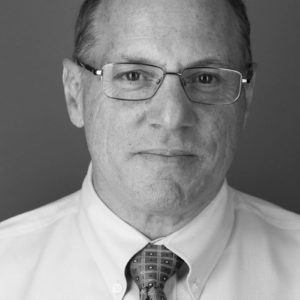The New KPI: How Many Of Our People Are Changemakers?


 As the 2008 Obama campaign COO and a former Deputy Assistant to the President in the Obama White House, I’m naturally interested in leadership and policy issues. I follow workplace policy issues especially, so I’ve paid attention to President Biden’s support for raising the minimum wage and protecting workers’ right to unionize, and his proposal to extend free public education to community colleges to give young people more economic opportunity and prepare them to join the workforce.
As the 2008 Obama campaign COO and a former Deputy Assistant to the President in the Obama White House, I’m naturally interested in leadership and policy issues. I follow workplace policy issues especially, so I’ve paid attention to President Biden’s support for raising the minimum wage and protecting workers’ right to unionize, and his proposal to extend free public education to community colleges to give young people more economic opportunity and prepare them to join the workforce.
Those are all positive initiatives worth supporting. But they won’t go far enough when it comes to helping today’s workforce competently navigate the new business strategic landscape. To succeed and thrive today, workers will need more than higher wages, stronger unions and more education. They will need to be oriented to a whole new way of working.
We’re in the midst of a giant, epoch-making, ongoing revolution, like the Industrial Revolution, but bigger, in which the only constant is change. It’s not just technological change—new technology is more an effect of the deep changes underway than a cause. Underlying the technological changes we all see is a subterranean earthquake of accelerating, omnidirectional change—economic change, social change, mindset change.
Not all of us see this clearly, but we can all feel its effects. It is rewriting our DNA, reshaping the strategic landscape, and changing everything we thought we knew about organizational leadership, productivity, political and social engagement—and just about everything else.
I call it the New Game. It is distinct from the Old Game that people my age grew up with unquestioningly, in which organizations were hierarchical, and power was concentrated in the hands of a few centralized leaders at the top.
In that world, which hadn’t fundamentally changed since the Industrial Revolution, repetition was king. Everyone from factory workers to lawyers honed a specialized skill, monetized it and practiced it over and over again to maximize value. The more repetitions, the more reward.
Each specialization had its own silo. A few bosses orchestrated the silos from the top down, controlling the flow of information, giving or withholding permission, doling out preference and seniority, and deciding who was in and who was out. Elite leaders controlled not only the means of production, but the tools of change – research, publishing, broadcasting, advertising. Madison Avenue madmen extended their reach and lionized their lifestyle.
That world still exerts a certain nostalgic fascination, but it has receded into history. Only vestiges of it remain, and those are disappearing fast. Today the tools of change once reserved for elites are now at everyone’s fingertips. But smartphones and other tech innovations are a side phenomenon of something deeper, which I call the changemaker effect.
The old, centralized leadership paradigm is giving way to a democratized one, where individual agency is rising, and everyone is empowered to make and lead change—not just because we have smartphones, but because the pace and pervasiveness of change has reached the point where new problems quickly overwhelm solutions, so all solutions are provisional and must keep evolving rapidly. In that situation, no one can afford to be passive. Everyone’s talents, passion, creativity, and leadership are needed to navigate continual explosive, accelerating change and make something good out of it. The Old Game was about hierarchy, controlled by one leader at a time. But in the New Game, everyone needs to be a leader and a changemaker.
That imperative is becoming part of our DNA as individuals and as a society. From #MeToo to #NeverAgain to #BlackLivesMatter and thousands of other non-hierarchical movements around the world leading the way into this New Game, we’re becoming a society of changemakers. And of course, when everyone is a changemaker, the rate of change grows exponentially.
This is the new strategic landscape, and the evidence of it is all around us. As a result, the physics of leadership have flipped. In the Old Game, the boss was big, everyone else was small. In the New Game, every person in an organization must step into their “BIGness,” bring their full agency to the table, and collaborate. The Old Game was siloed, with all information given out on a need-to-know basis. The New Game is cross-connected, where everyone needs and has full access to information to see the big picture and act. Old Game leaders granted or withheld permission and practiced exclusion. The New Game centers trust and inclusiveness.
Even though they are playing out all around us, not everyone fully recognizes how defining and irrevocable these changes are. Some organizations and many individuals will resist them, and aren’t prepared to play in the New Game. They will quickly get left behind, which is why our education system as well as our management structures need to be reoriented toward changemaking, and why former U.S. Education Secretary Arne Duncan called it “the new literacy.”
The most important KPI for companies and any organization is how many of its people are changemakers. If executives see changemakers coming through the doors of their company and not just employees, and educators see budding changemakers walking into the classroom and not just students, how would they redesign their operations to accommodate them?They’d encourage and embody empathy, diversity and inclusion as central values for this kind of teamwork.
If they do that, they’re on the path to success. If they don’t, they’re on the path to failure.
So by all means, let’s pay workers more, enable them to unionize, and broaden access to college education. But if we want everyone to truly thrive in today’s strategic landscape where change is the only constant, there is a new imperative to recognize their possibilities as changemakers, and to equip them to play fully and confidently in the New Game.
It’s the new KPI.

Chief Executive Group exists to improve the performance of U.S. CEOs, senior executives and public-company directors, helping you grow your companies, build your communities and strengthen society. Learn more at chiefexecutivegroup.com.
0

1:00 - 5:00 pm
Over 70% of Executives Surveyed Agree: Many Strategic Planning Efforts Lack Systematic Approach Tips for Enhancing Your Strategic Planning Process
Executives expressed frustration with their current strategic planning process. Issues include:
Steve Rutan and Denise Harrison have put together an afternoon workshop that will provide the tools you need to address these concerns. They have worked with hundreds of executives to develop a systematic approach that will enable your team to make better decisions during strategic planning. Steve and Denise will walk you through exercises for prioritizing your lists and steps that will reset and reinvigorate your process. This will be a hands-on workshop that will enable you to think about your business as you use the tools that are being presented. If you are ready for a Strategic Planning tune-up, select this workshop in your registration form. The additional fee of $695 will be added to your total.

2:00 - 5:00 pm
Female leaders face the same issues all leaders do, but they often face additional challenges too. In this peer session, we will facilitate a discussion of best practices and how to overcome common barriers to help women leaders be more effective within and outside their organizations.
Limited space available.

10:30 - 5:00 pm
General’s Retreat at Hermitage Golf Course
Sponsored by UBS
General’s Retreat, built in 1986 with architect Gary Roger Baird, has been voted the “Best Golf Course in Nashville” and is a “must play” when visiting the Nashville, Tennessee area. With the beautiful setting along the Cumberland River, golfers of all capabilities will thoroughly enjoy the golf, scenery and hospitality.
The golf outing fee includes transportation to and from the hotel, greens/cart fees, use of practice facilities, and boxed lunch. The bus will leave the hotel at 10:30 am for a noon shotgun start and return to the hotel after the cocktail reception following the completion of the round.